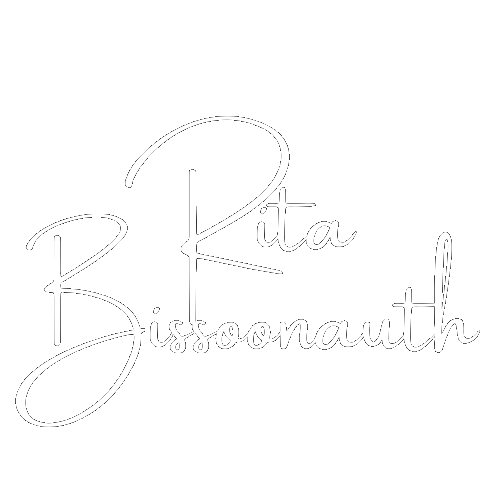The state has started training sessions to educate law enforcement and first responders about unlicensed care homes, and these education efforts may contribute to the state's ability to identify unlicensed personal care homes. Necessary cookies are absolutely essential for the website to function properly. They provide room, board, housekeeping, supervision, and personal care assistance with basic activities like personal hygiene, dressing, eating, and walking. However, the individual may have been arrested with no criminal conviction, convicted of a minor traffic offense or adjudicated as a juvenile. As noted, jurisdictional disagreements exist as to whether licensure agencies or APS agencies are responsible for the illegally unlicensed facilities. One key informant described a recent (2015) case of human trafficking in which a care home operator who was closing a home was explicitly selling residents for $100 each to other personal care home operators. One Maryland media report suggested residents are those released from rehabilitation centers with no families in the area. Room and Board Coalition Model Spreads | Disability Rights California Pennsylvania Department of Public Welfare. At least two states have demonstrated that coordinated efforts can effect changes to laws and policies and create at least initial disincentives or barriers to the operation of illegally unlicensed care homes. McGrath pursued both her Bachelor of Arts and Master of Fine Arts at University of California, Los Angeles, in film and television production. Unlicensed care homes provide room, board and some level of services for two or more unrelated individuals, but are not licensed or certified by the state. Key informants described the regulatory agency's ability to work with an operator of an illegally unlicensed personal care home to help facilitate the home obtaining licensure. If your concerns are still not addressed and you believe that . In Georgia, key informants also noted that hospitals directly discharge individuals to unlicensed care homes and some pay the first month of the resident's fees. To reduce abuse, several informants indicated that state officials should target closing unlicensed care homes. Retrieved from https://www.socialsecurity.gov/ssi/text-benefits-ussi.htm. Consistent with information from the environmental scan, key informant interviews indicate that some unlicensed homes use basements to house residents, including residents who do not have the capacity to exit safely in the event of a fire or similar emergency, such as those who are unable to climb the stairs and those receiving hospice care. We targeted site visits in communities that varied according to whether the state: (1) has legally unlicensed care homes; (2) has a list of unlicensed care homes; and (3) ranks among the highest or lowest in HCBS waiver expenditures. Our search of state AG reports of unlicensed RCFs identified only six cases of successful prosecutions in New York, Nevada, Florida, and California for operating a residential care home without a license--and in several cases, gross neglect in these homes. Reporters from the Atlanta Journal-Constitution analyzed thousands of inspection reports and interviewed state and local officials, social service providers, and advocates, and then published a series of articles on the status of affairs in unlicensed residential care homes (Schneider & Simmons, 2012a; Schneider & Simmons, 2012b; Schneider & Simmons, 2012c). The latest thing with hospitals, not only discharging to substandard places, the hospital is paying for the first month because it's cheaper than an expensive hospital bed.". Occupancy Limit Regulations in California, How to Evict Tenants Without a Contract & California Laws, Month-to-Month Rental Agreements & Evictions in California, Laws on Carpet Replacement in California & Renter's Rights, Termination of Tenancy in California: Types of Eviction Notices, California Department of Consumer Affairs: Who Is A "Landlord" And Who Is A "Tenant", California Department of Consumer Affairs: Before You Agree To Rent, California Department of Consumer Affairs: Dealing With Problems, California Department of Consumer Affairs: Terminations And Evictions, National Center for Health Housing: California Housing Law and Regulations Healthy Homes Provisions, Disability Rights California: Your Rights in Residential Care Facilities. Per state regulations, residential settings providing room, board and personal assistance with three or fewer residents who have at least one personal care need do not meet the requirements for licensure as a personal care home and are legally unlicensed. Local efforts were noted to be inconsistent and uncoordinated because authorities were unfamiliar with the laws. Before 2005, Pennsylvania allowed residential care homes with 1-8 individuals to be legally unlicensed. No Legally Unlicensed Residential Care Homes Are Allowed in Some States. As noted by one SME, unlicensed care homes that provide good care and a safe environment may intentionally not be brought to the attention of state agencies nor be reported by these agencies when they learn of these homes: "We do receive reports, about 6 months ago someone wrote to me about their mother who was getting care in an unlicensed homeshe was getting wonderful care, she wasn't going to report it. Retrieved from http://www.miamiherald.com. In one court case, the judge deemed a "boarding house" as an unlicensed residential care home because only three of the six people renting rooms received personal care from the owner's licensed home care agency, even though four actually needed those services. One key informant described the selling of residents from an unlicensed care facility located in a house. U.S. Department of Justice settlements were also discussed by one key informant. Due to the high cost of this care, its easy to understand why someone might be attracted to a board and care facility based on the price. Multiple key informants said some operators know the regulations better than the state regulatory agency and can therefore find creative ways to evade licensure. However, the effectiveness of these strategies in monitoring or otherwise addressing the prevalence of unlicensed care homes is unknown. KCMH currently links clients with approximately 30 homes ranging from 1-21 beds, usually 2 persons/room. Retrieved from http://www.ncjrs.gov/pdffiles1/nij/grants/229299.pdf. One key informant in North Carolina indicated that fines for the operation of unlicensed care homes have little impact on closing the homes, are rarely collected, and are not enforceable by their agency because the operation of an unlicensed care home is considered a criminal offense, and thus under the purview of law enforcement. In Pennsylvania, one key informant noted that this assistance is given only to those operators who have opened their first illegally unlicensed care home without realizing they needed to be licensed; assistance is not provided for those who are repeat offenders. In some cases they avoid licensure by holding themselves out as not providing services or housing residents that would require a license under state law. This department can request administrative search warrants to enter suspected illegally unlicensed personal care homes. Office of the Assistant Secretary for Planning and Evaluation, Printer Friendly Version in PDF Format (81 PDF pages). individuals with serious mental illness who require care and supervision as well as room and board. However, Legally Unlicensed Residential Care Homes Are Possible in Several States. We conducted most key informant interviews in Durham, with some additional interviews across the region, including Raleigh. Specific concerns included: Managing resident medications improperly. Licensure agencies in many states lack the legal authority to inspect, require plans of correction, or fine these unlicensed facilities. These steps include site visits to suspected illegally unlicensed care homes, during which an ombudsman may inform residents of their rights, APS may conduct abuse or neglect investigations, licensure staff may assess whether the residents should be in a licensed care home based on the level of service needs, and code enforcement staff may determine if the home meets regulatory code requirements. We heard stories from SMEs and site visit informants of operators recruiting vulnerable individuals from psychiatric wards of hospitals, from acute care hospitals through the hospital discharge planners, from homeless shelters, and directly from the street, similar to those we found in media reports (see Appendix B for details). Schneider, C., & Simmons, A. Multiple key informants spoke about a reduction in the number of Dom Care homes in the state and how this reduction may also give rise to illegally unlicensed personal care homes. This research might also address whether the Keys Amendment is achieving its goal of protecting the well-being of SSI recipients. One SME pointed out that many unlicensed care home cases are analogous to human trafficking, such as when residents are held against their will and then moved from one location to another to avoid detection; however, the current federal definition of human trafficking specifies that the trafficking is done for the purpose of labor or sex, and not for the collection of public benefits (U.S. Department of State, 2015). The first and most important step is to find a certified administrator. First, there is a lack of information about the effect of various state and national policies on the vulnerable individuals the policies were designed to protect and whose well-being they were intended to enhance. However, according to interview participants, fines have had little impact on closing the homes, as they were often unenforceable and rarely paid. From our review of states' regulatory information on licensed residential care categories during the development of the sampling frame for the 2014 National Study of Long-Term Care Providers, and our review of ASPE's Compendium of Residential Care and Assisted Living Regulations and Policy (2015), we found that 30 states require residential care homes to be licensed if they have at least one bed. "Caretaker" Accused of Abusing and Neglecting Mentally Challenged Victims. From May 2015 through February 2016, Mr. Akinsete operated three unlicensed Room and Board homes in South Sacramento, luring gravely disabled elders and dependent adults into his homes with false promises of medical care, medication dispensing, transportation to and from medical appointments, food, and cleaning. (2012a). Though outside the scope of our focus, some of the searches also produced media reports and grey literature about concerns in licensed care homes; however, reports about unlicensed care homes and the quality of care described therein was sometimes worse than those for licensed care homes. Key informants also commonly described the conditions in unlicensed care homes as abusive, financially exploitative, and neglectful of residents' basic needs, and depicted situations that involved false imprisonment of the residents and repeatedly moving the residents from one facility to another, both within and across states, to evade law enforcement. All of the key informants shared their perspectives about what is driving the closure of personal care homes. research and enforcement purposes. Key informants described the way the teams function. On the other hand, grey literature--that is, reporting databases, blogs, and media reports--produced more results about unlicensed care homes. The goal of this study was to provide foundational information intended to answer or provide insight into the study research questions. One issue that remains to be determined is the conditions or criteria by which such places constitute "unlicensed residential care homes." We also conducted site visits to a total of three communities in three states, including interviews with local and state-level key informants. Licensed Care Home Admission and Discharge Policies, http://www.agingavenues.com/topics/assisted-living-facilities-in-indianapolis-indiana, https://aspe.hhs.gov/basic-report/compendium-residential-care-and-assisted-living-regulations-and-policy-2015-edition, http://www.medicaid.gov/medicaid-chip-program-information/by-topics/long-term-services-and-supports/home-and-community-based-services/downloads/requirements-for-home-and-community-settings.pdf, http://www.gachiefs.com/pdfs/White%20Papers_Committee%20Reports/AtRiskAdultAbuseWhitePaper.pdf, https://aspe.hhs.gov/report/medicaid-residential-care, http://www.ncjrs.gov/pdffiles1/nij/grants/229299.pdf, http://www.dhs.state.pa.us/cs/groups/webcontent/documents/report/p_011015.pdf, http://www.bizjournals.com/prnewswire/press_releases/2012/04/17/DC88926, http://www.phlp.org/wp-content/uploads/2011/03/PCH_manual-for-advocates-Feb-20071.pdf, https://www.socialsecurity.gov/ssi/text-benefits-ussi.htm, http://www.nbcwashington.com/news/local/Caretaker-Accused-of-Abusing-and-Neglecting-Kamara-Zanaib-268343912.html, http://www.dads.state.tx.us/providers/alf/howto.html, http://www.state.gov/documents/organization/245365.pdf, APPENDIX B.


